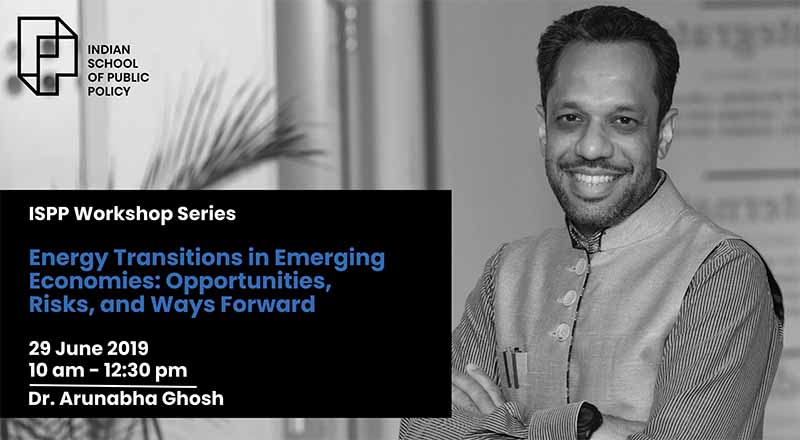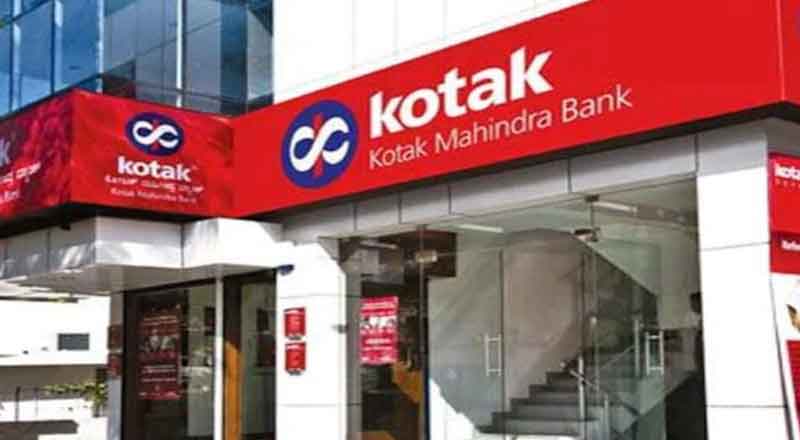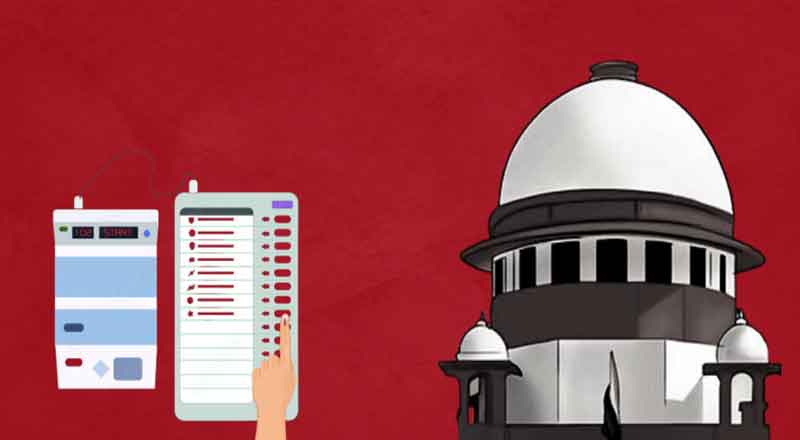The world of energy today looks very different. More than 80% growth in energy in the coming decades will come from emerging economies, especially India and China. Indeed, emerging economies are leading the discussion on increasing energy access and sustaining development while also transitioning toward clean energy sources. This was previously led by countries like USA and other OPEC nations. This imposes policy questions in energy transitions, even more important today.
In light of the above, the Indian School of Public Policy or the ISPP organized a workshop on ‘Energy Transitions in Emerging Economies: Opportunities, Risks, and Ways Forward’ by Dr. Arunabha Ghosh on 29 June 2019. Dr. Ghosh is the founder – CEO of the Council on Energy, Environment and Water (CEEW). Since 2010, he has led CEEW to the top ranks as one of South Asia’s leading policy research institutions (six years in a row); and among the world’s 20 best climate think-tanks in 2016.
The workshop focussed on the role of public policy in ending energy poverty and enabling the much needed transition to sustainable forms of energy such as solar power. Elaborating, Dr. Ghosh said, “Energy transition in emerging economies will occur in four ways: from traditional to modern forms of fuel; from rural energy demand to urban; deeper integration into global energy markets, especially of India and China; and the move from mere growth to sustainable growth, with focus on renewable energy and newer cleaner technologies.” He also said that 1.3 million jobs are estimated to be created by solar and wind sectors by 2022 if India realizes its 175 GW target. However, access to affordable finance is key to meeting India’s renewable energy targets.
The Indian School of Public Policy was formally launched on October 23rd, 2018 at the Constitution Club of India, New Delhi by dignitaries including N.K. Singh, Rajiv Mehrishi and Gurcharan Das. Notable experts from Tata Institute of Social Science, Twitter Inc India, Brookings Institution, Uber India and GMR established the urgent need for a new generation of policy professionals through a panel discussion. The School will commence a year-long Certificate Programme in Policy, Design & Management, intended to prepare students for challenging careers in policy action across government, industry and civil society.
Dr. Anurabha Ghosh
Dr Arunabha Ghosh is a public policy professional, adviser, author, columnist, and institution builder. As the founder- CEO of the Council on Energy, Environment and Water, since 2010. He has been actively involved in the design of the International Solar Alliance since inception. He conceptualised and is founding board member of the Clean Energy Access Network (CLEAN). With experience in 43 countries, Dr. Ghosh previously worked at Princeton, Oxford, UNDP (New York), and WTO (Geneva). In 2018, the UN Secretary-General nominated him to the UN’s Committee for Development Policy.
He is the co-author/editor of four books: The Palgrave Handbook of the International Political Economy of Energy (2017); Energising India: Towards a Resilient and Equitable Energy System (SAGE, 2016); Human Development and Global Institutions (Routledge, 2016); and Climate Change: A Risk Assessment (FCO, 2015). Arunabha’s essay “Rethink India’s energy strategy” in Nature was selected as one of 2015’s ten most influential essays.
Dr. Ghosh advises governments, industry, civil society and international organisations around the world. This has included India’s Prime Minister’s Office, several ministries and state governments, the COP21 climate negotiations; and the HFC negotiations. He serves on the Executive Committee of the India-U.S. PACEsetter Fund, and is a member of Track II dialogues with ten countries/regions. Dr. Ghosh writes a monthly column in the Business Standard, hosted a documentary on water in Africa, and featured in a National Geographic documentary on energy. He is a World Economic Forum Young Global Leader, was a member of WEF’s Global Future Council on Energy (2016-18), and an Asia Society Asia 21 Young Leader. He holds a D.Phil. from Oxford and topped Economics from St. Stephen’s College, Delhi.





